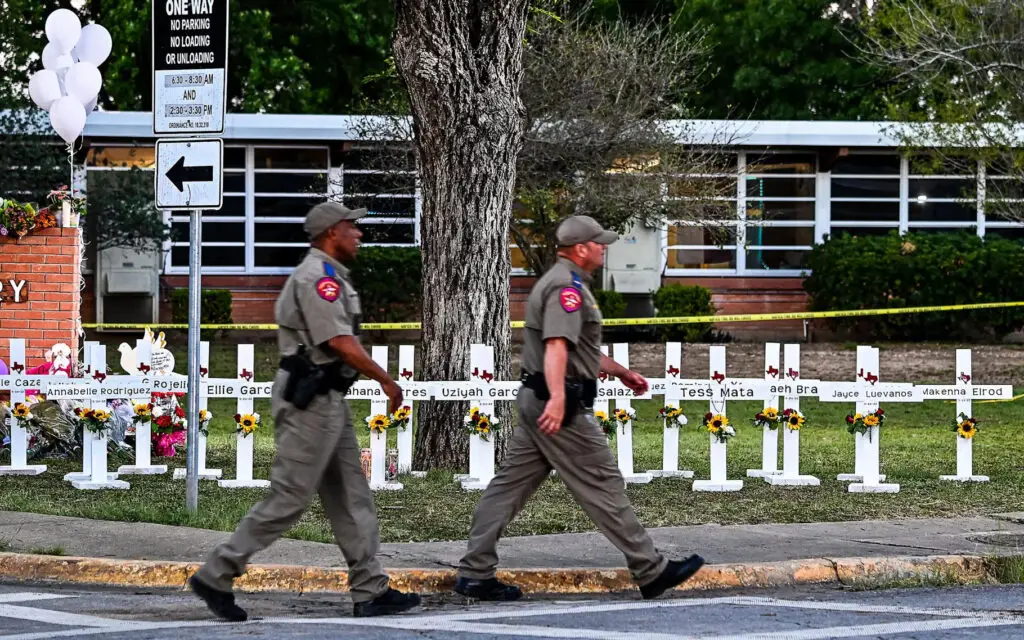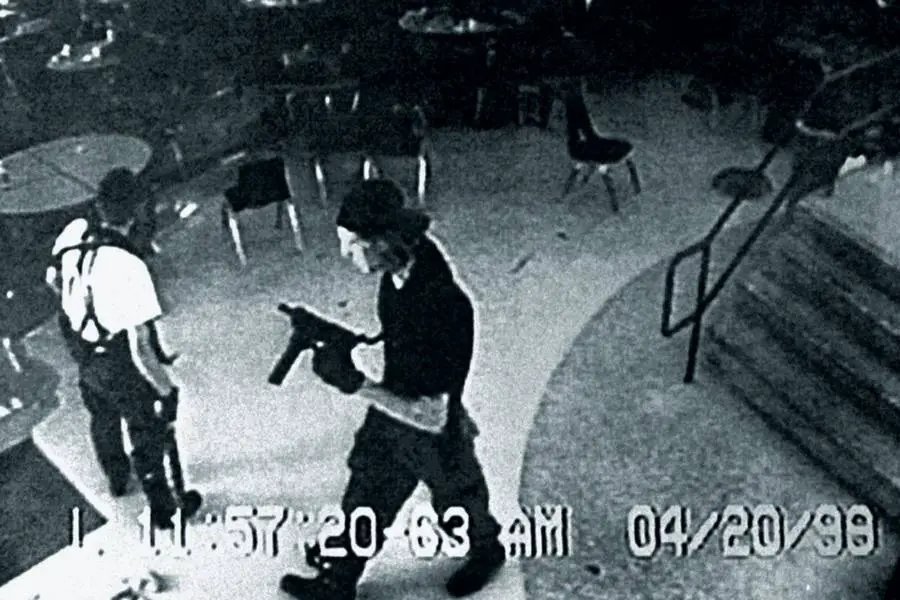Related Posts
In a report, the Justice Department pointed out problems with the tragic Uvalde school shooting in 2022, where 21 people lost their lives. The findings show the system couldn’t handle such situations well. Even though there were no charges, fixing these issues is still very important. The report is like an alarm, telling officials to think again and make better emergency plans. Moreover, the goal is to prevent more tragedies like Uvalde from happening in the future.
Community’s Wait for Answers
The extensive 600-page report has been shown, giving a bit of closure to the primarily Latino working-class community. It backs up what they always believed: the response to the Uvalde school shooting wasn’t good enough. The Department of Justice made this report, saying similar things the community has felt for a long time. It talks about the mistakes made during the response, showing its seriousness. This report means more than just a bunch of pages for the community. It’s like saying, “We hear you, and we’re trying to figure out what went wrong on that sad day.”
Command Vacancy and Lives Lost
According to Yahoo News, the report highlights a crucial issue: no clear leader during the active shooter incident. Plus, this lack of command led to slow reactions, resulting in tragic loss of lives. Additionally, without someone in charge, confusion prevailed. As seconds turned into minutes, lives hung in the balance. The report explicitly stresses the need for a designated authority to coordinate responses swiftly. Consequently, lives could have been saved if a leader had been in place to guide immediate and decisive action. This critical finding underscores the importance of establishing clear command structures in emergencies to prevent delays and minimize the impact on those in danger.
DOJ’s Uncommon “Critical Incident Review”
The Department of Justice’s infrequent practice of conducting a “critical incident review” for school shootings underscores the gravity of the lapses in Uvalde. In this situation, former NYPD officer Jillian Snider suggests that the findings might significantly influence national policies for responding to mass shootings. The rarity of such reviews by the DOJ accentuates the seriousness of the situation. Consequently, Snider’s insight points to a potential shift in how the nation prepares and responds to similar tragic events. It highlights the necessity for a collective and standardized approach, emphasizing the need for public safety measures.
Implications for School Safety

The DOJ’s recommendations go beyond Uvalde, urging schools and police to adopt clear policies. This means having straightforward rules everyone understands. Seeking accreditation is like getting a gold star for following the rules well. It shows a commitment to doing things right. Establishing unified command structures means having a clear leader in emergencies. Think of it like a team captain directing plays. This helps respond faster and better in mass shootings or crises. It’s like having a plan everyone knows and follows, making things safer for everyone involved.
To get insights about another legal story related to schools, click here.
Texas Adopts DOJ Suggestions
Texas Governor Greg Abbott assures that the state has already adopted several of the Department of Justice’s (DOJ) suggestions, demonstrating a dedicated effort to enhance emergency response procedures statewide. This move indicates a proactive stance in addressing the deficiencies identified in the DOJ’s report on the Uvalde school shooting. Texas aims to bolster its preparedness and coordination in handling crises by incorporating these recommendations. The commitment to implementation underscores a recognition of the importance of swift and effective responses to emergencies, emphasizing the state’s dedication to the safety and well-being of its residents.
Columbine Legacy: Lessons Not Learned

The report highlights the importance of learning from the Columbine High School shooting. It highlights the immediate need for rapid law enforcement response in active shooter situations. Despite the tragedy at Columbine, these important lessons were not fully acknowledged. Now, Uvalde’s case is a stark reminder that immediate action is the most important thing for law enforcement in the face of an active shooter. The report highlights the importance of using past models to enhance response mechanisms and ensure stakeholder safety. Prompt action in such tragedies can significantly prevent further problems.
Confusion and Chaos Inside Classrooms
The absence of effective coordination and communication among different agencies created confusion within the targeted classrooms. Initially, this confusion caused injured children to be taken on school buses instead of ambulances, worsening the already chaotic situation. Consequently, the failure to work together and share information among the responding groups amplified the challenges. Injured students in need of urgent medical attention were inadvertently subjected to delays and inappropriate transportation methods. In light of these circumstances, this lack of synchronization in the response efforts highlights the critical importance of streamlined communication and collaboration. It underscores the need for swift and appropriate reactions in emergencies.
Law Enforcement Failure
Mo Canady, at the National Association of School Resource Officers, classifies the Uvalde school shooting as the most significant failure in managing such incidents. This categorization underscores a crucial demand for immediate changes. Moreover, the urgency for reform is unmistakable in Canady’s assessment, explicitly highlighting a pivotal moment for improvement in law enforcement practices. Notably, the gravity of the Uvalde incident necessitates swift action, compelling Canady to emphasize the pressing need for comprehensive reforms to prevent similar failures in the future. As the head of this crucial organization, Canady’s words echo the collective sentiment, reinforcing the idea that change is imperative to ensure the safety of students nationwide.
Brief Wrap-up
The Uvalde school shooting, examined thoroughly by the Department of Justice, reveals significant problems in how law enforcement responded. This prompts an immediate demand for necessary changes. The report goes beyond local concerns, impacting the entire nation. It stresses the importance of having consistent rules in place to ensure quick and efficient reactions during mass shootings. The need for standardized protocols becomes glaringly evident, emphasizing the urgency for reform. This comprehensive review signals a call for action to enhance the overall preparedness of law enforcement in the face of such tragic events.

